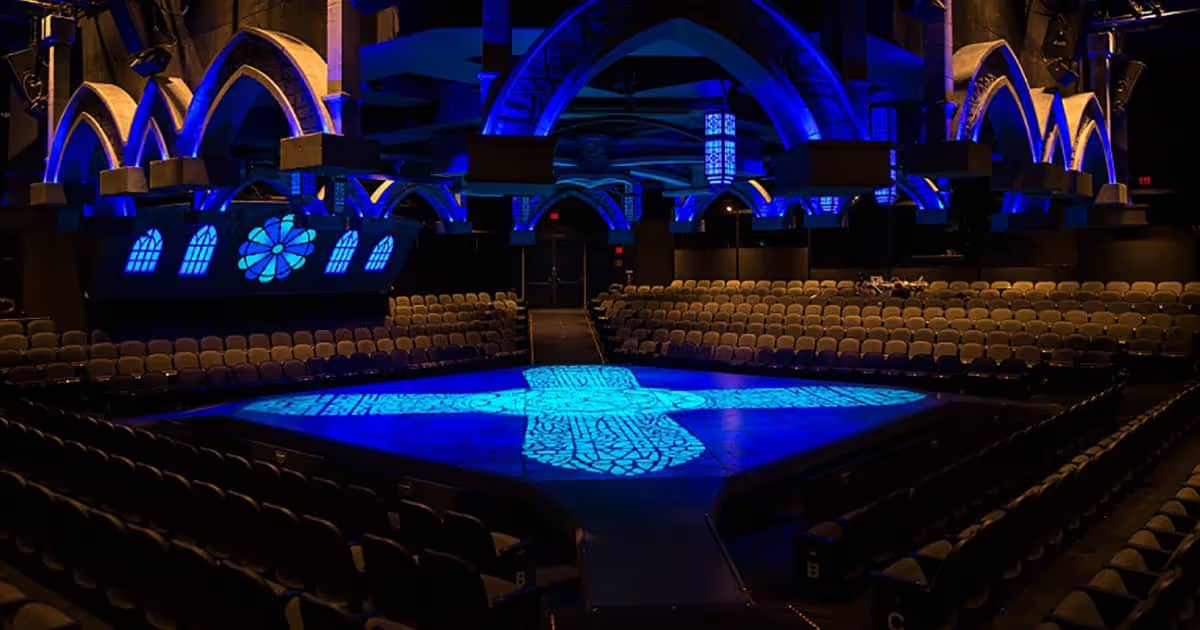In Marriott Theatre's '1776,' hope and change never sounded so good
It was a savvy bit of forethought by the Marriott Theatre in Lincolnshire, snagging the rights to stage “1776” roughly nine weeks before an election that feels — similarly to the musical itself — like a hinge in history whose direction could determine the shape of things to come for generations.
But even if the show that opened Wednesday at the venerable north suburban theater existed beyond the unavoidable context of this year’s deeply contentious presidential race, it would still be a must-see musical.
Director Nick Bowling has crafted a story defined by a rich, sprawling ensemble that renders the laborious, contentious and painstaking work of the Second Continental Congress into a series of political cliffhangers.
Set between late May and July 4, 1776, the Tony Award-winning, 1969 musical from Sherman Edwards (music and lyrics) and Peter Stone (book) follows the fledgling U.S. Congress as its members struggle through the fetid Philadelphia heat to reach a consensus on independence.
On one side, “1776” serves up firebrands like John Adams (Tyrick Wiltez Jones). The passionate, loquacious speechifying in favor of independence by Adams, repeatedly mocked as “obnoxious and disliked” by his peers, forms the nexus of “1776.”
On the other side are British loyalists including John Dickinson (Heidi Kettenring, one of several women cast to tremendous effect in traditionally male roles) and the slave-owning Edward Rutledge (Matthew Hommel, whose honeyed voice espouses the values of white supremacy to chilling impact).
The musical is centered on Adams, with Jones’ considerable fire-power rendering the role as explosive as a Fourth of July fireworks display. But in Bowling’s sprawling, seamless ensemble, every founding father stands out.
Sagacious guru/quipster Benjamin Franklin (Richard R. Henry) is a font of incisive ironies and cutting wisdom. The wide-eyed optimism of Rev. John Witherspoon (Ed Kross) is pure comic gold in Kross’ capable hands. Erik Hellman’s Thomas Jefferson stops the show with his soft-spoken comparisons between birthing a new nation and hatching an eagle. In all, the founders here are not mythic icons but flawed, fascinating humans. They’re visionaries with tremendous blind spots, composed of equal parts foibles and heroism.
The show itself is awkwardly structured. The music is unevenly interspersed: Scenes that play out entirely via sung-though operatic vocals punctuate lengthy song-free recitations of various historical documents and floridly entertaining dramatic manifestations of their creators.
It’s compelling regardless. Love letters between Adams and his wife Abigail (Katherine Alexis Thomas) unfurl amid fraught roll-call votes. Gen. George Washington’s increasingly bleak dispatches from the field are met with derision about how predictably depressing his reports always are.
And of course, there is momentous attention paid when the Declaration is rolled out with its proclamation that “all men are created equal.” That’s the line that winds up with a gigantic metaphorical asterisk after a brutal showdown between Jefferson and Rutledge. The latter insists that the newly hatched nation’s enslaved people will not be included in “all men,” forcing Jefferson — a Virginia slave-owner — to capitulate the point.
Edwards’ score defies tidy genre classification. The rollicking opener “Sit Down, John” is rich in raucous, intricate harmonies belted with all the fervor and frustration you’d expect from a cantankerous delegation of men trying to forge a new nation during a heat wave that fills the halls of power with both flies and heightened tempers.
When Alicia Kaori’s Martha Jefferson launches “He Plays the Violin,” she creates a spritely, saucy, slightly racy ode to the Declaration’s author. With the mournful, astounding “Momma Look Sharp,” an unnamed Courier (Jay Westbrook) delivers a haunting elegy to the war’s missing, dead and damaged.
And when Kettenring leads the conservatives of the Second Continental Congress in “Cool, Cool Considerate Men,” the wealthiest of the wealthy give voice to their chilling determination to maintain their status quo at any cost.
Choreographed by Tanji Harper and playing out on an elegant, minimalist series of circular platforms by set designer Regina Garcia, “1776” looks as good as it sounds.
Harper’s kinetic, structured movements keep the stage dynamic. Sometimes, they create a mood that’s rambunctious and comedic (“The Lees of Old Virginia,” led with jolly egomania by Lucy Godinez), sometimes monstrous (“Molasses to Rum,” which presents Rutledge as an almost demonic figure), sometimes solemn and anthemic (“Is Anybody There,” a timely query about whether the world beyond the Philadelphia chambers fully comprehends the gravity of the moment). Throughout, costume designer Theresa Ham’s exquisitely detailed, immaculately tailored costumes look period-perfect.
“1776” rests primarily on John Adams, and is a star-making turn for Jones. But the production is defined by its ensemble of standouts, whether the mood is as fractious as an endlessly bickering legislature or as triumphant as a sweeping ballot-box victory.











